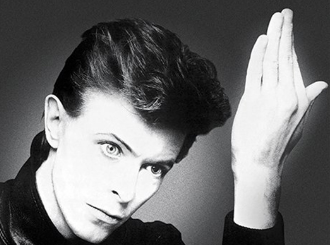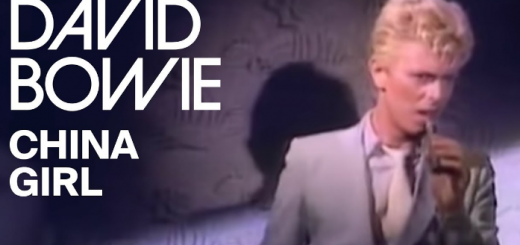Girl Loves Me by David Bowie Lyrics Meaning – Navigating the Labyrinth of Time and Language
Lyrics
Party up mood, naddy vellocet round on Tuesday
Real bad dizzy snatch making all the homies mad, Thursday
Popo blind to the polly in the hole by Friday
Where the fuck did Monday go?
I’ll go to this pig and pug show
I’m sitting in the chestnut tree
Who the fuck’s gonna mess with me?
Girl loves me
(Hey cheena)
Girl loves me
Girl loves me
(Hey cheena)
Girl don’t see
Where the fuck did Monday go?
I’ll go to this pig and pug show
Where the fuck did Monday go?
You viddy at the Cheena
Choodesny with the red rot
Libbilubbing litso-fitso
Devotchka watch her garbles
Spatchko at the rozz-shop
Split a ded from his deng deng
Viddy viddy at the cheena
Girl loves me
(Hey cheena)
Girl loves me
Girl loves me
(Hey cheena)
Girl told me
Girl loves me
(Hey cheena)
Girl loves me
Where the fuck did Monday go?
Where the fuck did Monday go?
Where the fuck did Monday go?
Girl come see
(Hey cheena)
Girl loves me
Girl loves me
(Hey cheena)
Girl don’t see
Where the fuck did Monday go?
Where the fuck did Monday go?
David Bowie, an artist synonymous with the inexhaustible reinvention and profound storytelling, has left behind a legacy of songs that serve as puzzles wrapped in enigma and clad in the vibrant fabric of exuberant sounds. ‘Girl Loves Me’ from his final master stroke of an album, ‘★’ (pronounced ‘Blackstar’), projects a sonic and lyrical landscape shaped by cryptic linguistics and an undercurrent of existential despair.
Venturing beyond the veil of initial obscurity, the track unfolds as a riddle that reveals distress about fleeting time, a yearning for meaning amidst chaos, and a deep-seated concern for generational disconnect. Herein, we delve into the intricate tapestry of Bowie’s composition, unwrapping layers to expose a potent narrative that speaks to both the personal and the universal.
Clocks Running Wild: The Disappearing Days Motif
At the heart of ‘Girl Loves Me’ is the chorus’s poignant refrain, ‘Where the fuck did Monday go?’ This repeated distress signal echoes the human preoccupation with time’s elusive nature. Bowie, confronting his mortality, encapsulates the anxiety that comes with realizing that our collection of moments is rapidly diminishing, no more evident than when the days of the week seem to evaporate without a trace.
While at the surface it coaxes us into considering our own preoccupation with time, a deeper resonance suggests Bowie’s personal confrontation with his terminal illness, giving the track an air of intimate urgency. Looking at the fleeting days, the song’s protagonist seems to chase after a life that’s hurtling towards an inevitable end, making this motif one that freezes us in existential contemplation.
Coded in Nadsat: Bowie’s Linguistic Homage to ‘A Clockwork Orange’
Peppered throughout ‘Girl Loves Me’ is the peculiar vocabulary of Nadsat, drawn from Anthony Burgess’s dystopian novel ‘A Clockwork Orange.’ This coded language pulls the listener into a disorienting world that mirrors the internal chaos of the character. The use of this lexicon heralds a connection to a youth culture that exists outside of mainstream understanding—a nod, perhaps, to Bowie’s own evolving relationship with his diverse fan base.
The use of Nadsat and Polari—a form of British slang used by the gay community in the 20th century—also posits a thematic duality. Bowie plays with layers of communication, highlighting how language can create barriers as easily as it can build bridges. In confronting the ‘otherness’ of this vernacular, the song envelops us in a narrative that simultaneously distances and invites.
Thursday’s ‘Bad Dizzy Snatch’: Time, Drugs, and Despair
There is a jarring, almost violent imagery to be found in ‘Real bad dizzy snatch making all the homies mad, Thursday.’ The phrasing lashes out with a powerful sense of hedonism and disorientation. Bowie taps into the collective anxiety about substance use and addiction—a possible metaphor for the numbing agents society employs to deal with the accelerating pace of life and the paucity of authentic connections.
His stark focus on Thursday as a point of unraveling presents a microcosm of modern disillusionment. One can’t help but wonder if the tensions borne from a culture of excess and immediate gratification have influenced Bowie’s brooding words, prompting a reflection on whether we are lost within our own self-destructive cycles.
The Enigmatic ‘Chestnut Tree’: Echoes of Orwellian Dystopia
The verse ‘I’m sitting in the chestnut tree’ conjures an evocative image, one that directly alludes to George Orwell’s ‘1984’ where the character Winston Smith finds fleeting solace with his love, Julia. In Bowie’s use, this literary reference functions as a sanctuary overshadowed by broader societal control and surveillance—a space where defiance is contemplated, but also where vulnerability festers.
By invoking such potent symbols, Bowie layers his song with textured meanings, offering a space for listeners to grapple with concepts of resistance and resignation. This blend of the personal with the literary deepens the song’s resonance, casting its narrator as both contemporary and timeless, universal and singular.
The Haunting Inquiry of ‘Girl don’t see’: The Song’s Hidden Meaning
With the line ‘Girl don’t see,’ Bowie throws a shroud over the central theme of love and connection. It’s not just that the girl in question loves the song’s protagonist—it’s that there’s a dimension of incomprehension, a lack of total vision. This theme reverberates like a warning siren, signalling the disconnect between personal affection and the ability to fully comprehend another’s internal world.
In this way, ‘Girl don’t see’ crystallizes the essence of the song’s hidden meaning: a cry for understanding in the darkness of isolation, confusion, and the desperate scramble for a meaningful existence. These four words illuminate the tragic irony of seeking solace in another when lost to the labyrinth of the self.








